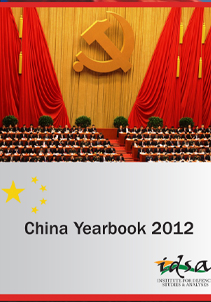National Interests and Threat Perceptions: Exploring the Chinese Discourse
The purpose of this study is to review the conceptualization and debates within China on its national interests and the threats perceived to these. It is hoped that an insight into how Chinese scholars and leaders view the current situation in their country and the world will help to better understand the motivations and constraints that China may face in formulating its policies – both domestic and foreign.
- Rukmani Gupta |
- 2013 |













